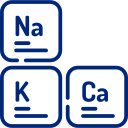A Multi-Specialty Dedicated Clinical Research Facility
Elite Clinical Studies is a multi-specialty dedicated clinical research facility in Phoenix, Arizona.
Volunteer

Current Studies

Contact Us


About Us
Advancing Medicine Through Patient-Centered Research
Elite Clinical Studies is a multi-specialty dedicated clinical research facility in Phoenix, Arizona. We have an extensive database with a current participant list in most major indications. Our PI’s and Study Coordinators have years of experience in many different fields of research.
The site is located minutes from Sky Harbor Airport and centrally located for participants in the cities of Phoenix, Tempe, Scottsdale, Mesa, Paradise Valley, Litchfield Park, Glendale and Peoria.

Advanced Instruments

Laboratory Specialists

Observation Trials

Neurological Analysis
Our Solutions
Where Medical Breakthroughs Begin

Patient Recruitment

Study Design and Conduct

Data Collection
Our Facilities
Advancing Medical Knowledge For Better Patient Outcomes

25+ Years Of Experience
Why Choose Elite Clinical Studies

Experienced Team

Patient-Centered Care

Advanced Technology

Access to New Treatments

Contributing to Medical Knowledge

Be a part of the solution: Participate in clinical trials with Elite Clinical Studies
Our Work
Current Clinical Studies
We are constantly receiving new clinical trial studies and update this page often. If you don’t see anything you are interested in below, please fill out our volunteer form or call today to be put on a list to be contacted when a clinical study becomes available for you.
Opiate Addiction
Elite Clinical Studies in Phoenix, AZ, is now enrolling participants for a clinical trial focused on opiate addiction, aiming to explore new treatment options and gather essential data to improve management of this chronic condition. Participants will receive access to cutting-edge treatments, comprehensive medical support, and may be compensated for their time and travel expenses.
Atrial Fibrillation
Elite Clinical Studies in Phoenix, AZ, is now enrolling participants for a clinical trial focused on Atrial Fibrillation (AFib), aiming to explore new treatment options and gather essential data for better management of this condition. Participants will receive access to innovative treatments, comprehensive medical support, and may be compensated for their time and travel expenses.
NERD
Alopecia
Alopecia is a condition where the immune system mistakenly attacks hair follicles, causing hair thinning, patchy bald spots, or complete hair loss. Elite Clinical Studies in Phoenix, AZ, is currently conducting a clinical trial to explore new treatment options for Alopecia, aiming to gather data that could improve its management and care.
Ulcerative Colitis
Chronic Kidney Disease
IBS with Diarrhea
Explore groundbreaking advancements in the field of Irritable Bowel Syndrome with Predominant Diarrhea (IBS-D) through Elite Clinical Studies' innovative IBS Clinical Study, offering qualified Arizona residents the opportunity to contribute to cutting-edge research and potentially improve treatments for this challenging condition.
Gout
Elite Clinical Studies is leading a Gout Clinical Trial study in Phoenix, offering crucial support to physicians in investigating and managing this painful inflammatory arthritis condition, while ensuring regulatory compliance throughout the research process.
Fibroids
Elite Clinical Studies is currently at the forefront of a Fibroids Clinical Trial study in Phoenix, assisting physicians in advancing research on this common reproductive health concern. Our comprehensive support ensures smooth trial execution while maintaining strict regulatory compliance.
Endometrosis
Elite Clinical Studies is actively conducting an Endometriosis Clinical Trial study in Phoenix, providing dedicated support to physicians exploring advancements in the understanding and treatment of this challenging gynecological condition. Our commitment ensures a seamless research process while adhering to rigorous regulatory standards.
Type I or Type II Diabetes
Type I and Type II diabetes are both chronic metabolic disorders characterized by high blood sugar levels. Type I diabetes, often diagnosed in childhood or adolescence, on the other hand, Type II diabetes, typically diagnosed in adulthood.
Lipoprotein (a)
Lipoprotein (a), often abbreviated as Lp(a), is a type of lipoprotein particle that circulates in the blood. Elevated levels of Lp(a) in the blood have been associated with an increased risk of cardiovascular diseases, including heart attack and stroke.
Active Rotator Cuff Tendinopathy
Active rotator cuff tendinopathy refers to a condition characterized by inflammation and degeneration of the tendons in the rotator cuff muscles of the shoulder. It commonly occurs as a result of repetitive overhead activities or age-related wear and tear.
Acid Reflux
Acid reflux, also known as gastroesophageal reflux disease (GERD), is a condition characterized by the backflow of stomach acid into the esophagus. This occurs when the lower esophageal sphincter (LES), a muscular ring that separates the stomach from the esophagus, weakens or relaxes inappropriately.
Heartburn
Heartburn is a common symptom of acid reflux, characterized by a burning sensation in the chest or throat. It occurs when stomach acid flows back into the esophagus, causing irritation and discomfort.
Atopic Dermatitis
Atopic dermatitis, also known as eczema, is a chronic inflammatory skin condition characterized by dry, itchy, and red patches on the skin. It commonly affects individuals with a personal or family history of allergies, asthma, or hay fever.
Asthma
Asthma is a chronic respiratory condition characterized by inflammation and narrowing of the airways, leading to recurrent episodes of wheezing, coughing, chest tightness, and shortness of breath. It is a condition that can range from mild to severe, and its symptoms can vary in frequency and intensity from person to person.
Erosive Esophagitis
Erosive esophagitis is a condition characterized by inflammation and damage to the lining of the esophagus. It is commonly caused by gastroesophageal reflux disease (GERD), where stomach acid flows back into the esophagus, leading to irritation and erosion of the tissue.
COPD
COPD, or chronic obstructive pulmonary disease, is a progressive lung disease characterized by persistent airflow limitation. It is often caused by long-term exposure to irritants such as cigarette smoke, air pollution, and occupational hazards.
COPD with Exacerbations
COPD with exacerbations refers to the worsening of symptoms and a sudden increase in the severity of chronic obstructive pulmonary disease (COPD). Exacerbations can be triggered by various factors, such as respiratory infections, exposure to irritants, changes in weather, or failure to adhere to treatment plans.
MACE
MACE stands for Major Adverse Cardiovascular Events. It is a term used to describe a group of serious cardiovascular events that can have significant health implications. MACE typically includes events such as heart attack, stroke, cardiovascular death, and the need for coronary revascularization procedures like angioplasty or bypass surgery.
Hypertension
Hypertension, also known as high blood pressure, is a common medical condition characterized by elevated pressure in the arteries. It is often considered a silent or asymptomatic condition, but it can have serious health implications if left untreated.
Obesity w/Type II Diabetes
Obesity and Type II diabetes often go hand in hand and can have a significant impact on an individual's health. Obesity is defined as having excess body fat, typically resulting from an imbalance between calorie intake and expenditure.
Obesity w/Cardio Vascular Disease
Obesity is a significant risk factor for cardiovascular disease (CVD), which refers to a group of conditions affecting the heart and blood vessels. Excess body weight, particularly central obesity (excess fat around the abdomen), contributes to various mechanisms that increase the risk of CVD.
GERD
GERD, which stands for gastroesophageal reflux disease, is a chronic digestive disorder characterized by the backflow of stomach acid into the esophagus. It occurs when the lower esophageal sphincter (LES), a muscular ring that separates the stomach from the esophagus, becomes weak or relaxes inappropriately.
Cardiovascular Outcomes
Chronic Idiopathic Constipation
Elite Clinical Studies in Phoenix, Arizona is currently enrolling participants for a Chronic Idiopathic Constipation (CIC) Clinical Trial Study aimed at advancing treatment options for those suffering from this persistent condition.
